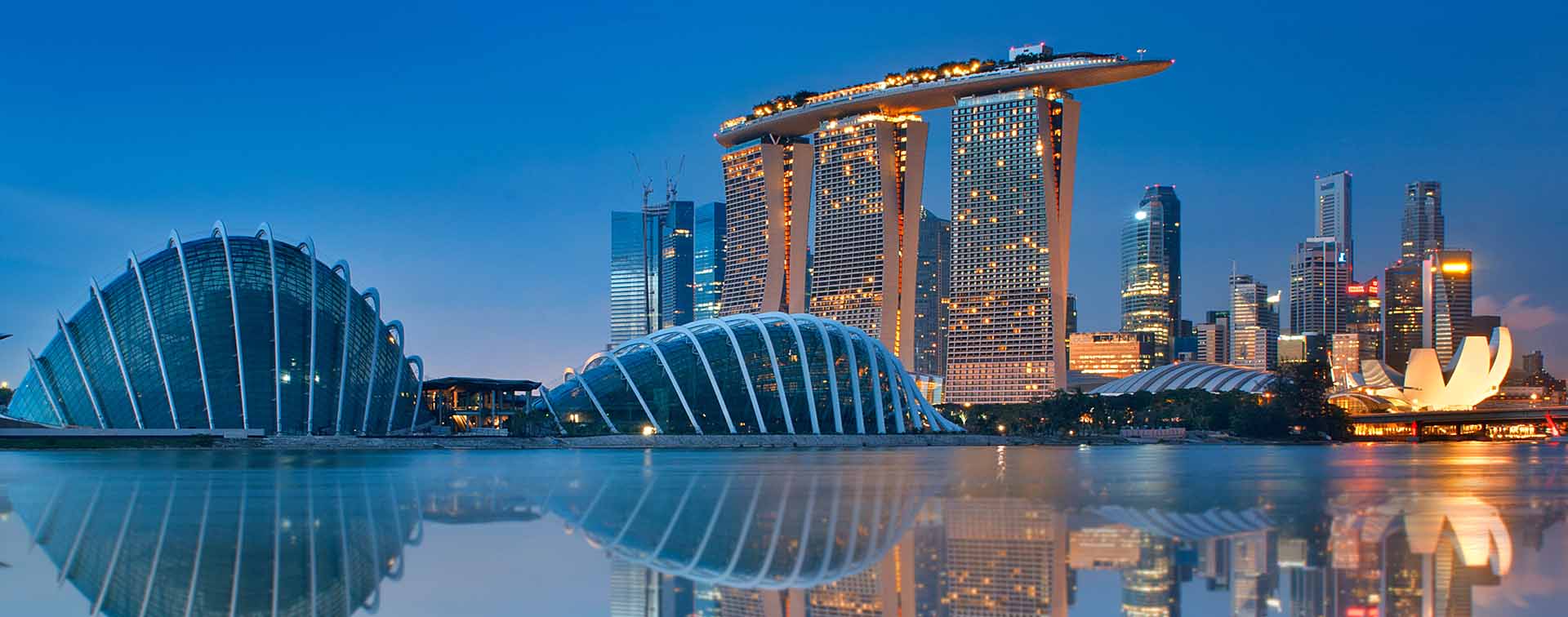
Prof. Khoo Teng Chye is Director of NUS Cities and Practice Professor at the College of Design and Engineering at the National University of Singapore.
The excerpt below is taken from my chapter in Free Global Cities: The Future Leaders in Migration and Public Governance (Bloomsbury Publishing, 2025. The chapter brings together the ‘before and after’ images of Singapore, and its government’s visionary transformation strategy that was realised through sustained human enterprise. It juxtaposes the humble island beginnings of the pre-independent Singapore of the humming, dynamic city-state of today, a vibrant, highly orchestrated, sophisticated, world-class metropolis, harmoniously employing and accommodating 5.9 million highly motivated residents from all walks of life around the world, on 734 km2 of real estate.
Singapore has followed an integrated development plan using ten core principles. These are the mainstay of its three key outcomes: a competitive economy, a sustainable environment, and a high quality of life. The chapter explores in more detail the city-state’s chief strategies for balancing housing, infrastructure, defence, and green spaces. Its results showcase all its victories, not least its innovative strategies to solve the challenge of finite available land and the multiple demands made on it for its best use.
Albeit diminutive in geo-physical terms, this city-state, in inverse proportion, stands tall as an enduring model of balanced urban development, good governance, and long-term planning. One of the world’s few high-density cities with an accompanying high lifestyle standard, it is today an essential reference for free global cities in the making that wish to future-proof themselves as global economic hubs, and successfully partnership internationally with investors, entrepreneurs, and a skilled, diverse workforce thriving in a Free Global City.
Singapore’s evolution into a global metropolis is underpinned by its multifaceted role as a hub for businesses, talent, sustainability, and innovation. Here, we delve into the factors that have propelled Singapore onto the global stage and its contributions to shaping the world’s solutioning in sustainability and innovation.

Singapore has invested heavily in developing modern transportation networks, state-of-the-art communication systems, and cutting-edge facilities. Today, the city-state stands as one of the world’s busiest container ports, facilitating seamless trade connections to more than 600 ports in over 120 countries.1 The ongoing development of Tuas Port, due for completion in the 2040s, is envisioned as the world’s largest fully automated container terminal with a capacity of up to 65 million twenty-foot equivalent units annually. As an aviation hub, Singapore handles a large volume of passenger and cargo traffic; the Changi Airport is regularly ranked among the world’s best airports, serving more than 100 airlines flying to 200 destinations and over 68 million passengers annually (before the COVID-19 pandemic).2
Streamlined regulatory processes, transparent governance, and investor-friendly policies have greatly facilitated the ease of setting up businesses in Singapore. It only takes 15 minutes to register a company online3 and 1.5 days to set up a business.4 On average, more than 50,000 new businesses – including SMEs, subsidiaries of MNCs, and start-ups – are formed in Singapore every year.
The city-state’s strong trade links with the world, its strategic location, excellent connectivity, and extensive network of free trade agreements have enabled it to attract multinational corporations and become a preferred destination for headquarters and regional operations. Currently, the city hosts over 7,000 multinational corporations, 300 venture capital and private equity funds, nearly half of Asian regional headquarters, and some 43 per cent of Southeast Asia’s unicorns.5
In parallel, targeted initiatives to train and attract talent have been implemented. The Singapore Government has invested in education and skills development programmes to nurture a highly skilled workforce: more than 30 per cent of them hold a university degree, with another 15 per cent having earned a diploma or professional qualification. In addition, Singapore’s open and cosmopolitan society, coupled with its quality of life and safety standards, make it an attractive destination for talent from around the world. Singapore continues to maintain a high and affordable standard of living, while its residents enjoy political stability, low crime rates, and excellent healthcare, education, housing, recreation and transport options.
Benefiting from robust global connectivity and access to capital, information, and talent, Singapore has also emerged as a leader in promoting connectedness and collaborations in sustainability and innovation.
Singapore has initiated platforms such as the World Cities Summit (WCS) and Singapore International Water Week (SIWW), which serve as valuable forums for stakeholders to exchange ideas, showcase best practices, and co-create innovative solutions to pressing urban and water management challenges. Moreover, each edition of WCS and SIWW act as catalysts attracting over 20,000 participants from governments, business sectors, academia, and non-governmental organisations for exchanges and collaborations.
In addition to hosting those events, Singapore actively engages in partnerships and knowledge-sharing initiatives with other nations. For instance, its involvement in environmental cooperation through bilateral and regional platforms, such as the Sino-Singapore Tianjin Eco-City project with China, aimed at pioneering sustainable urban development practices, as well as its collaboration with Jambi Province in Indonesia aiming at improving peat land management and promoting sustainable land use practices.
Similarly, by sharing the CLC Liveability Framework through training programmes including the experiences and expertise with countries like China and India, Singapore contributes to global efforts towards sustainable urbanisation. These partnerships also validate that the principles distilled in the Liveability Framework are relevant and applicable to other countries, proving Singapore’s leadership in sustainable development practices.
Furthermore, Singapore extends technical assistance and human resource capacity building to other countries through initiatives like the Singapore Cooperation Programme (SCP). Under this framework, initiatives like the Small Island Developing States Technical Cooperation Programme cater to the unique needs of small island developing states, focusing on climate-related challenges. SCP training courses cover a broad spectrum, including sustainable urban development, water management, energy efficiency, and emissions reduction. Just through the SCP’s Climate Action Package and flagship technical assistance programmes, Singapore has trained close to 150,000 officials from over 180 countries and territories, equipping them with essential skills in climate adaptation, mitigation, disaster risk management, and green finance.6
[ . . . ]
These initiatives demonstrate Singapore’s commitment to sharing its wealth of knowledge, experience, and expertise globally, contributing to global solutioning in sustainability and innovation.
[ . . . ]
Looking towards the future, Singapore recognises the need to constantly review, reinvent, and adapt to emerging trends, challenges and evolving needs. These include climate change, demographic change like a rapidly ageing population, technology changes which will have socio-economic disruptions as well as shocks like another pandemic, etc. They will put to the test the robustness of the urban systems approach, especially good urban governance.
Free Global Cities: The Future Leaders in Migration and Public Governance (Bloomsbury Publishing, 2025), edited by Dr. Christian H. Kälin, is available to purchase through bookstores worldwide, via Bloomsbury Publishing).
References and notes
1 Maritime & Port Authority of Singapore.
2 Changi Airport Group.
3 Accounting and Corporate Regulatory Authority (2023).
4 World Bank Group (2020).
5 Economic Development Board.
6 National Climate Change Secretariat, ‘Singapore and International Efforts’, Strategy Group Prime Minister’s Office. nccs.gov.sg/singapores-climate-action/singapore-and-international-efforts/